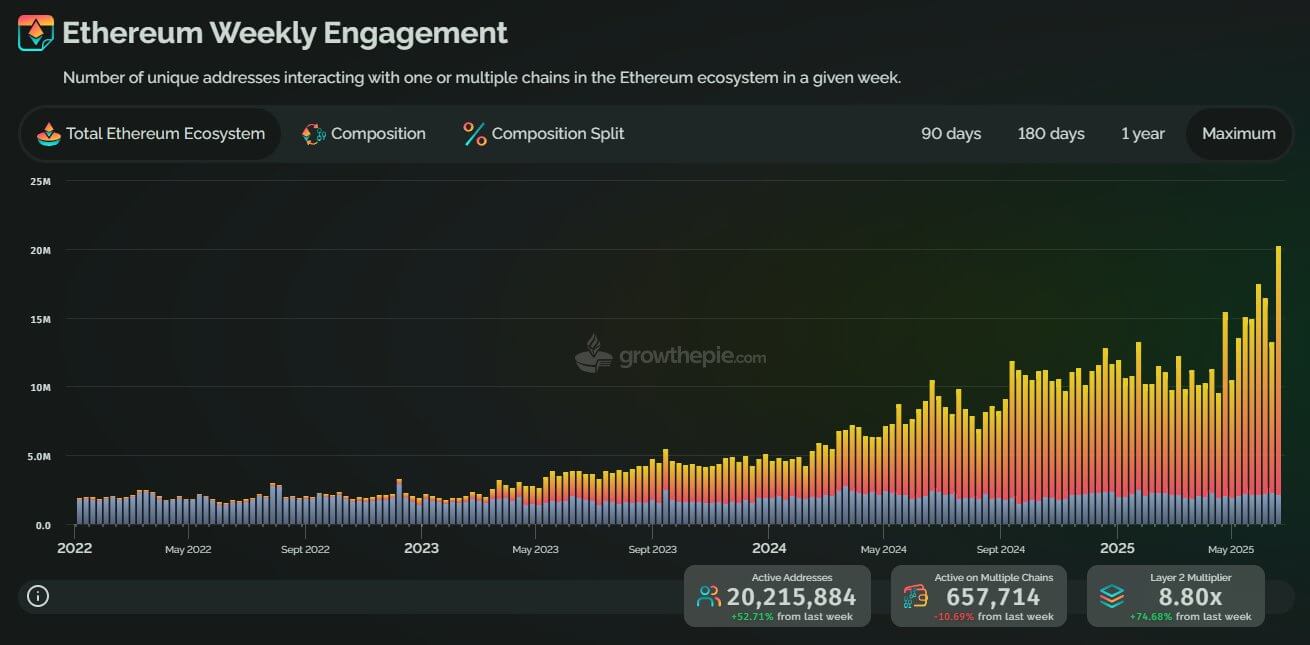Ethereum’s core developers are pushing for a major technical change that could reshape how quickly the network processes transactions.
On June 21, Barnabé Monnot, one of Ethereum’s core contributors, suggested a new proposal, EIP-7782, which would halve the block slot time from 12 seconds to 6 seconds.
According to him:
“Shorter slot times make Ethereum a better confirmation engine, which is arguably one of its main value propositions for apps and rollups settling on Ethereum L1. Everyone benefits directly.”
EIP-7782 benefits
He explained that the proposed changes would improve confirmation speed, reduce trading costs on decentralized platforms, and create better conditions for cross-chain protocols.
The proposal also includes adjustments to the timing of several core blockchain operations, such as attestation and aggregation windows.
Under EIP-7782, the block proposal slot would shrink from 4 seconds to 3. Attestations and aggregations would move even faster, cut from 4 seconds to 1.5 each.
Monnot has proposed that the EIP should headline Ethereum’s upcoming Glamsterdam upgrade. He said:
“There are multiple slot restructuring proposals already made for Glamsterdam (EIPs 7732 and 7886), focused more on scaling We want to use our Glamsterdam proposal as a place to highlight the value of shorter slot times, and progress the conversation towards their implementation.”
Meanwhile, this push for faster slot times aligns with the Ethereum Foundation’s broader goal of enhancing the network’s Layer 1 performance and refining user experience.
Considering this, Storm Slivkoff, a research partner at Paradigm, supports the proposal. He noted that reducing latency could be the most valuable upgrade included in Glamsterdam, especially as transaction fees drop below $0.10.
In such an environment, increasing block size yields diminishing returns. Instead, improving block quality becomes more critical.
Ethereum’s ecosystem growth
The proposal comes as Ethereum’s activity hits new highs amid rising institutional adoption.
According to GrowThePie data, more than 20 million active addresses interacted with the network last week, setting a record. However, most of that activity happened on layer-2 networks, such as the Coinbase-backed Base.

So, as Ethereum’s Layer-1 developers now propose making the core network faster and more efficient. If successful, the proposed slot time cut could improve performance where speed, cost, and usability matter most.
The post Ethereum developers issue proposal to halve block slot time to boost transaction speed appeared first on CryptoSlate.



